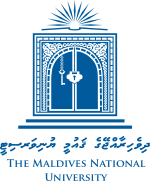A Use of Urban Green Space and Wellbeing of Individuals in Male’ City, Maldives
DOI:
https://doi.org/10.70592/mjet.2024.1.01.002Keywords:
urban green space, Male’ City, well-beingAbstract
An increasing body of literature suggests a strong positive association between urban green spaces and human well-being. The presence of natural areas in urban settings has been shown to be crucial for enhancing the quality of life and promoting sustainability in cities. However, most of the existing research on urban green spaces has focused on large cities that differ significantly from the geographical context of Maldives, particularly its unique small island city of Male', which faces congestion-related issues. Thus, the objective of this study is to examine the impact of urban green spaces on the well-being of individuals in Male' city. Specifically, the study analyzed the frequency and duration of green space utilization. Well-being was assessed using a tool developed by the International Wellbeing Group, which measures subjective well-being across seven life domains. Through a survey involving 407 participants, the study provided insights into the relationship between these two variables. A Spearman’s Rho test was done on the Use of Urban Green Spaces and Subjective Wellbeing to find out the relation between the two. The results of the Spearman’s Rho shows, there is a significant positive linear relationship between (Subjective Well Being) SWB and Frequency of (Urban Green Space) UGS Use (rs (405) = .516, p <.001). Participants who used green spaces reported a higher level of SWB.
Downloads
Published
Issue
Section
License
Copyright (c) 2024 Maldives Journal of Engineering and Technology

This work is licensed under a Creative Commons Attribution 4.0 International License.







